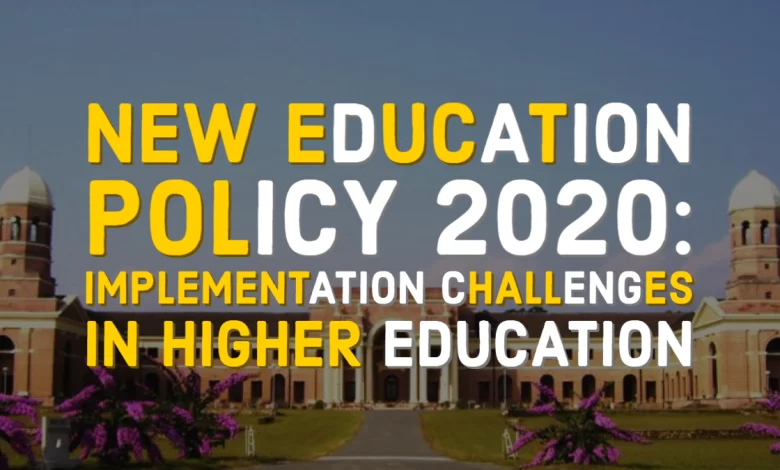Challenges of NEP

NEP is starting to gain momentum, but the road to its realization is endlessly pitted. First, India’s education sector is large and diverse, making it a difficult task to implement. Statewide implementation of this large-scale education policy will be a huge exercise involving multiple stakeholders at the state, county, sub-county and block levels. At the highly diverse state and district level, creating shared ownership and ownership among key stakeholders, including the private sector, will be a major challenge for education leadership.
As correctly pointed out by the NEP drafting committee chaired by K. India’s Kasturirangan education system is underfunded, overburdened and lacking the capacity to innovate and expand. The internal capacity of the Ministry of Education (headquarters and country) and other regulators is wholly inadequate to control the extent of the transformation envisioned in the NEP. At the highly diverse state and district level, creating common ownership and ownership among key stakeholders, including the private sector, will be a major challenge for education leadership.
This means that thousands of schools and colleges will need operational capacity building and reorientation to implement mega programs with many empirical goals. The organizational structure and its ecosystem need to undergo a major overhaul. While it is encouraging that the NEP document has set a comprehensive roadmap for overhauling the existing regulatory system, the Ministry of Education has drafted legislation to facilitate the establishment of the Indian Higher Education Commission (instead of the existing regulator). is in the process of submitting , mainly UGC, AICTE, and the National Council for Teacher Education), we have to wait for a new institutional architecture to emerge from legislative initiatives. A number of opposition-controlled states have expressed strong opposition to several key provisions of the NEP and the way it is implemented.
Apart from that, the private sector brings much-needed financial resources and innovation. It is therefore imperative that governments and regulators create viable institutional mechanisms that leverage the contributions of the private sector and recognize it as an equal partner in the NDP process.
Finally, successful implementation of important initiatives will require adequate funding over decades. In this regard, the NEP says the country must increase public spending on education to her 6% of her GDP in order to meet the new policy goals. Given past promises and actual deliveries, this is a daunting task.












